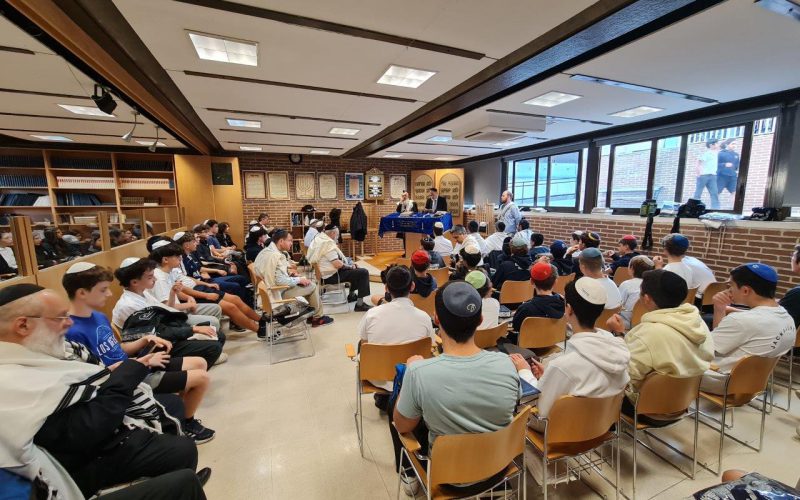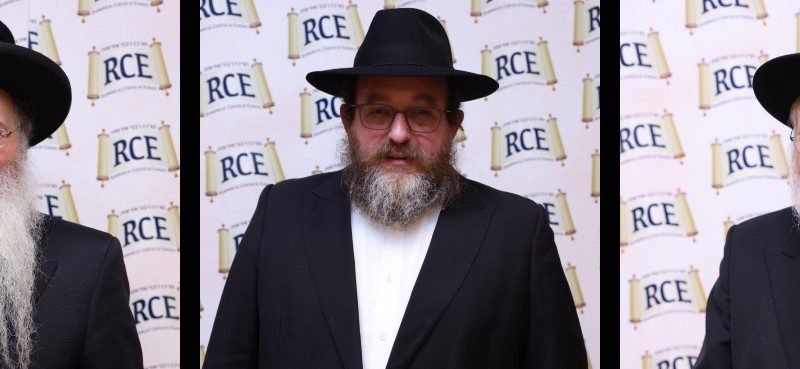RCE Initiative: International Hotline for Handling Emergency Situations

In the wake of terrorist and anti-Semitic acts in Europe, some of which have harmed Jews, the RCE, assisted by Israelife, United Hatzalah and Zaka, has created a system for setting up an international hotline to handle emergency situations. The staff will also train members of Jewish communities throughout the world, so that each community will be equipped to respond to every such emergency. Part of this plan is to provide training in safety measures and self-defense.
This program was created in response to multiple requests that have come to the RCE from Jewish community leaders throughout the world, who expressed deep concern that an emergency or tragedy could create a major crisis for the community and its Jewish institutions, or it could expose the community to physical danger for individuals, institutions, shuls, community centers, schools, preschools and more.
These community leaders added that, in addition to any physical harm to members of their communities, they would have to deal with the effects of these anti-Semitic acts on community resilience and residents’ loss of confidence, if an event occurred finding the community unprepared for it, or if the community lacked a plan for recovery and return to routine.
It is self-evident that a community that is prepared in advance for emergencies will handle a crisis far better and will be able to respond quickly, both in dealing with the event itself and in dealing with its aftereffects. The community will then be able to minimize the damage resulting from the event. The assistance of government offices cannot replace the role of the community leaders in the heat of a crisis. Only those who have a response protocol already in place will be prepared and protected.
One of the fundamental principles of this emergency response program is the maintaining of standard procedures, with the understanding that “what works in a routine will work in an emergency.” The goal is to build a community response system for both everyday problems and emergencies, which will include recruiting volunteers from the community and training them properly to be able to respond to crisis situations, such as medical emergencies in routine situations, while maintaining close cooperation with existing security forces and emergency response teams.
This coordination will shorten response time and will allow for faster life-saving treatment in a wide variety of emergency medical situations. It will also empower community members to act to save lives rather than to simply wait helplessly for an ambulance to show up. At the same time, in a situation of multiple casualties, the volunteers will be trained to handle the event, to prioritize the wounded, administer first aid and evacuate them. These community volunteers will be able to respond immediately with whatever needs to be done; when the local security and emergency medical personnel arrive, the volunteers will be able to work with them and to assist the families of the wounded as quickly as possible. All this will enable the community to return to normal functioning with a minimum of long-term effects.
As part of the international hotline service, the general population will be given access to a technologically advanced emergency application for cell devices. Any Jew who senses that he is in danger or threatened, or any Jew who finds himself at the site of an anti-Semitic act or terrorist event, can click on this icon and be connected to the international hotline service, whose workers will then contact the nearest volunteers and the local security forces, besides their automatic call to those who can make the right contacts and pull strings during a crisis.
The application will also enable the community leadership to spread important messages to the entire community, using their technological platform. All the volunteers will be connected to this international hotline, uniting Israelife, United Hatzalah, and Zaka. This will enable people to receive assistance both in normal times and during crises, and it will enable them to reach Israelife’s international office, plus an international, multilingual station for medical advice.
As explained above, this program was put together only in the last few months. At this time the RCE is preparing to offer these services to the heads of Jewish communities worldwide so that they can decide whether it suits their particular needs.
The RCE’s General Director Rabbi Menachem Margolin, who also serves as the general director of the European Jewish Association (EJA), stated that this initiative comes as part of the EJA’s assertion that the time has come to stop talking and to act. The EJA intends to make sure that every European community will be ready to deal with complicated situations and that it will receive the necessary support.


